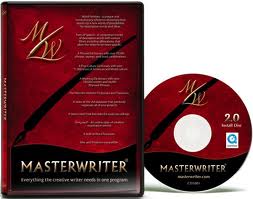• You talk about melodic intervals if you play notes after each other.
• You talk about harmonic intervals if you play notes together.
• If you talk about spaces among three or more notes, it's called a chord.
• You talk about harmonic intervals if you play notes together.
• If you talk about spaces among three or more notes, it's called a chord.
Semitones
If you play a key on a piano, then the key right next to it, you've got a semitone. There is a semitone between each key on the keyboard. For example, there is a semitone between F and F# and also E and F (because there is no black key between them). You can also go "down" and take E and E♭ - they are also a semitone away from each other.
Diatonic and Chromatic Semitones
• You call a semitone diatonic when the two notes are spelled with different letter names. Going back to our previous example: E and F or D and E♭.
• You call a semitone chromatic when the two notes have the same letter name. For example: F and F#.
Whole Tones
Whole tones mean music intervals that consist of two semitones. When you write sheet music, you must write whole tones on adjacent lines and spaces. And if you need to raise one of them by a semitone (like in case of E and F where there is only a semitone difference), you just write a sharp (#) of flat (♭) symbol next to the note to make it a whole tone. Another name for the distance of whole tone is major 2nd.
Tone-Plus-Semitones
A tone-plus-semitone is a musical interval that means a three-semitone distance. You also have to write the notes on adjacent lines and spaces. Another name for the distance of tone-plus-semitone is augmented 2nd.
Unisons, Fourths, Fifths, Octaves
To find out the size and type of a music interval, i.e. an interval between two notes, start counting from the bottom note (the bottom note is 1) and count each line and space. You'll get a number like "a 5th" (if the above note is nr. 5). At this point, you have one more thing to do, decide the type of the interval:
• Perfect
• Diminished
• Augmented
• Diminished
• Augmented
If the top notes in the interval is in the major scale of the bottom note, we talk about a perfect interval.
If interval is smaller than in the previous case, we talk about a diminished interval.
If interval is bigger than a perfect interval, we talk about an augmented interval.
We could also say, that a diminished interval is a semitone smaller than a perfect one, and an augmented interval is a semitone larger than the perfect one.
Seconds, Thirds, Sixths, Sevenths
If you'd like to find out the interval of two notes, again, your first task is to count from the bottom note (the bottom note being "1") to the top note. Count each line and space.
Their quality can be:
• Major
• Minor
• Augmented
• Diminished
Now, just like earlier, decide if the top note is in the major scale of the bottom note. If it is, you have a major interval.
A minor interval is a semitone smaller than a major one.
If an interval is a semitone larger than a major interval, it's augmented.
If and interval is a semitone smaller than a minor interval, it's diminished.
Sometimes you need to use a double sharp or double flat to write augmented or diminished intervals.
Compound Intervals
Compound intervals are larger than an octave: ninth, tenth, eleventh...
Inverting Intervals
Yes, you can even introvert intervals. It simply means that the bottom note goes to the top or vice versa.
But what interval will you get than? There is a very simple rule for that: all music intervals and their inversions add up to 9. For example:
• Fifths invert to fourths (5+4=9)
• Octaves invert to unisons (8+1=9)
also
• Perfect intervals invert to perfect
• Major intervals invert to minor
• Diminished intervals invert to augmented
These rules work the other way around, too.
More Music Theory











